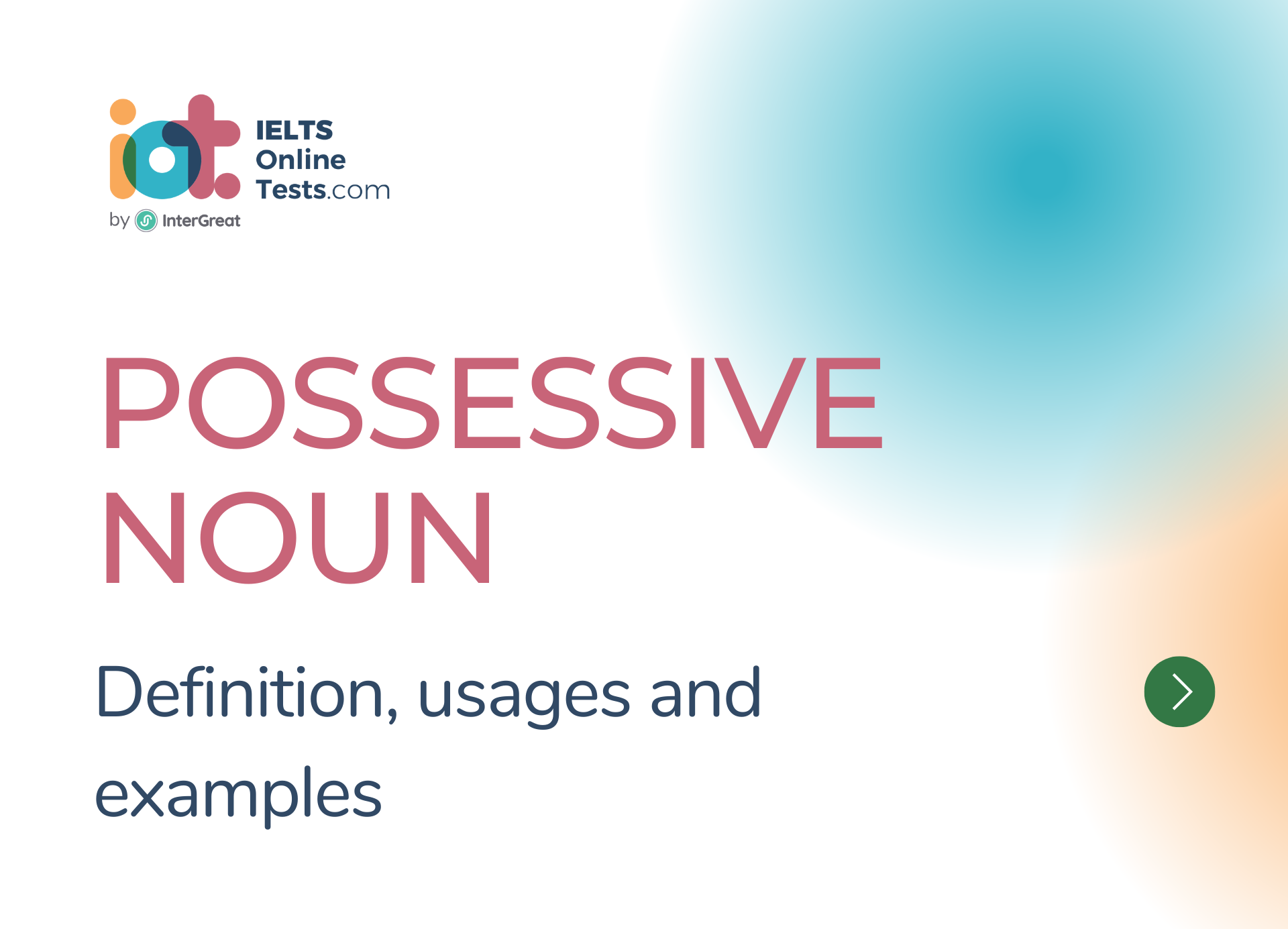
Possessive noun definition and examples
Possessive nouns are nouns that show ownership or possession. They indicate that something belongs to or is associated with someone or something else. Possessive nouns are formed by adding an apostrophe (') and an "s" ('s) to the end of a singular noun, or just an apostrophe (') to the end of a plural noun that already ends in "s."
Here are some examples of possessive nouns:
Singular nouns:
- The dog's bone (the bone belonging to the dog)
- Mary's book (the book belonging to Mary)
- The company's logo (the logo belonging to the company)
Singular nouns ending in "s":
- James's car (the car belonging to James)
- The waitress's tip (the tip belonging to the waitress)
- The boss's office (the office belonging to the boss)
Plural nouns not ending in "s":
- The children's toys (the toys belonging to the children)
- The women's team (the team belonging to the women)
- The mice's nest (the nest belonging to the mice)
Plural nouns ending in "s":
- The students' backpacks (the backpacks belonging to the students)
- The cars' tires (the tires belonging to the cars)
- The houses' roofs (the roofs belonging to the houses)
It's important to note that not all nouns that indicate ownership are possessive. For example, possessive pronouns like "yours," "hers," or "theirs" already imply ownership and do not require an apostrophe.
Additionally, possessive nouns can also be used to indicate a relationship or association, even if there is no literal ownership involved. For example:
- My sister's wedding (the wedding of my sister)
- The city's skyline (the skyline of the city)
- The company's employees (the employees associated with the company)
Understanding possessive nouns helps clarify ownership and relationships in sentences. Proper usage of possessive nouns ensures clear communication and accurate depiction of ownership or association between nouns.




